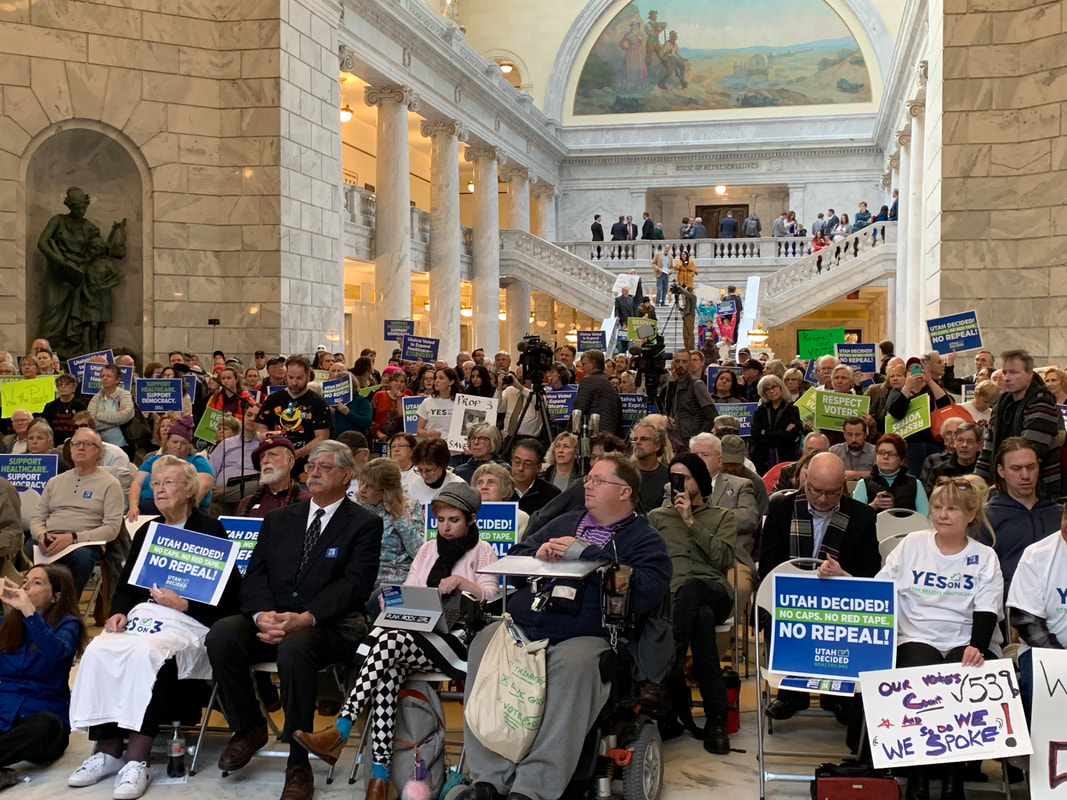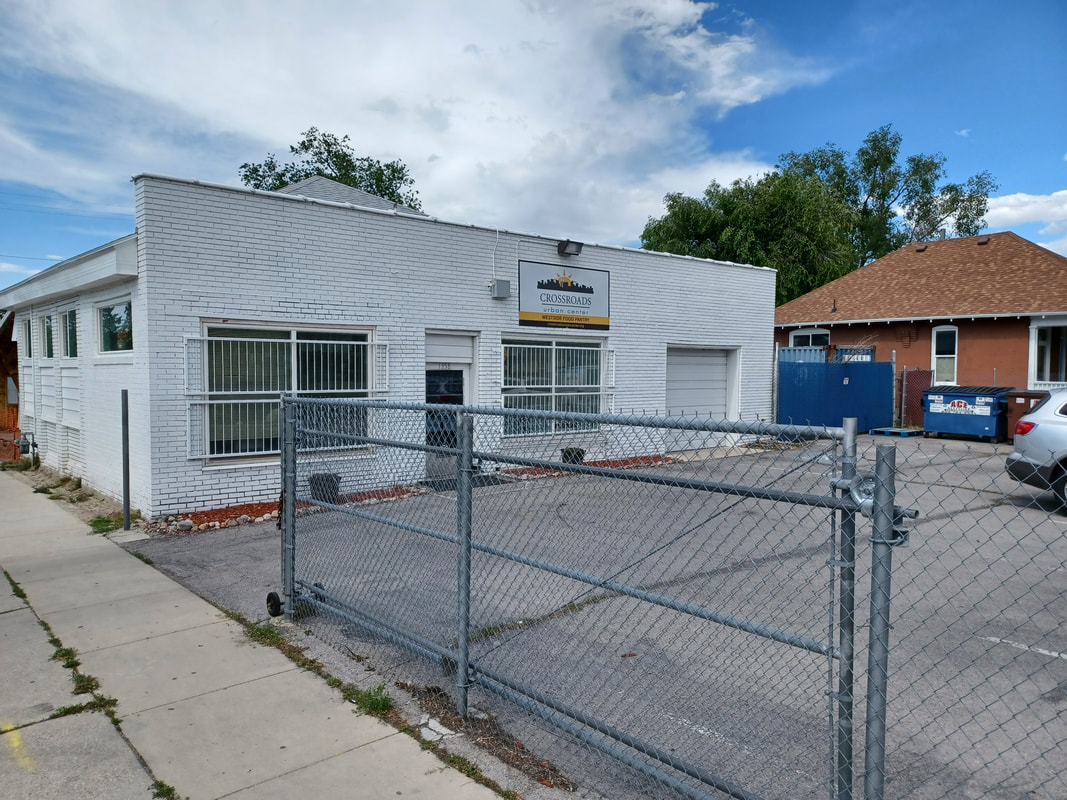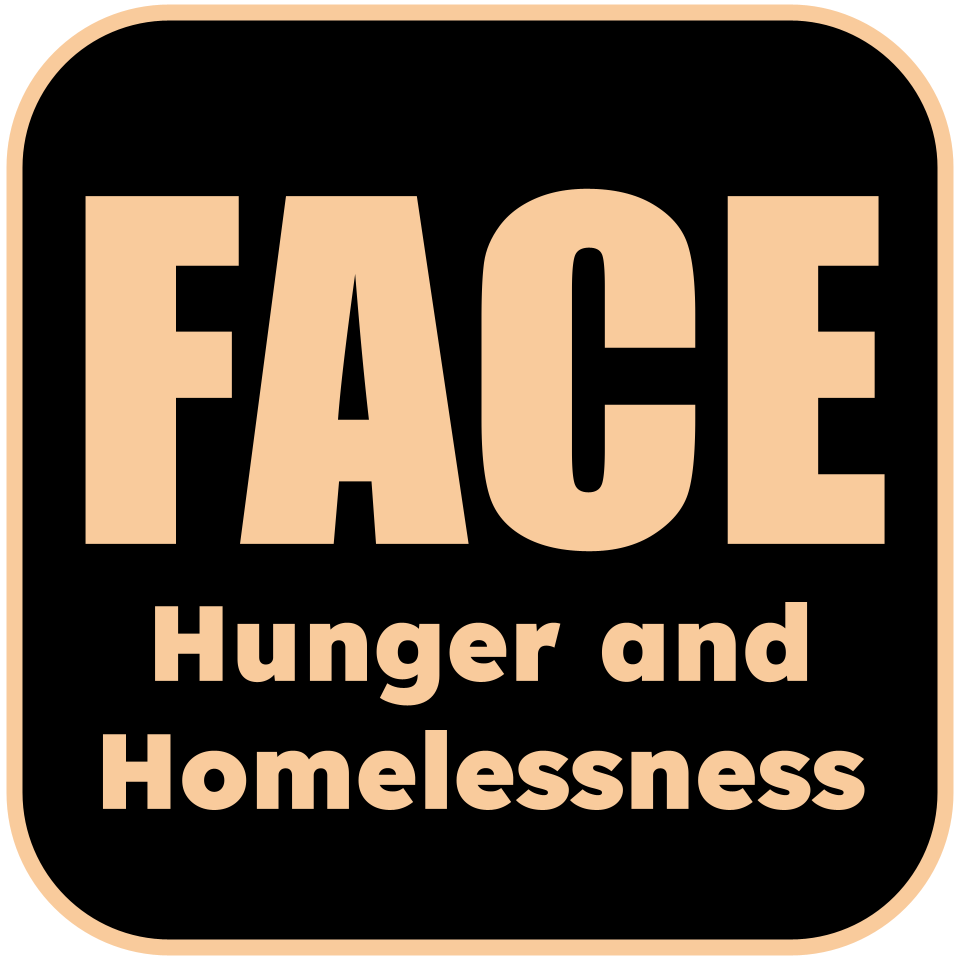| by Bill Tibbitts, Associate Director Last year Utah voters approved full Medicaid expansion when they voted to in favor of Proposition 3. The Utah Legislature attempted to scale back this expansion during the 2019 legislative session by passing SB 96-- which had three different packages of ideas for reducing state spending on Medicaid expansion. This first package of ideas in SB 96 was rejected by the White House before Utah was even able to submit a formal request for it to be considered. On September 27, 2019, the Department of Health released a proposal to implement the second package of ideas found in SB 96 and began a 30 day public comment period that is required before they can submit the proposal to the federal government. This second package is much better for low income people than the first package would have been. The income threshold for eligibility is the same as that in Proposition 3 and it does not have arbitrary caps on state spending that were included in the proposal that was rejected by the White House. Unfortunately, this new proposal also includes premiums and work requirements for some people which will both reduce enrollment. Mandatory monthly payments and paperwork requirements will have the biggest impact on people with mental health and cognitive functioning issues who will wind up reenrolling in Medicaid in emergency rooms instead of getting preventative care or consistently dealing with chronic conditions. One very positive part of the waiver is its proposal to include services for preventing homelessness in Utah's Medicaid plan. There is a growing consensus that housing is healthcare. The traumas associated with housing instability and homelessness create physical and medical health conditions, worsen existing conditions, and increase the likelihood of entering the hospital with an urgent condition. Utah's proposal appears to be modeled on a waiver request from Minnesota that the federal government approved on August 1, 2019. Utah's proposal for using Medicaid funding to prevent homelessness has three components: 1. Tenancy Support Services: this component includes a variety of case management services that will help people get into housing and stay in housing successfully. 2. Community Transition Services; This component will help people pay for the costs of moving into housing and will include funding to pay for a rental deposit and first and last month's rent. 3. Supportive Living/Housing Services: This component will fund the provision of medical services in formerly homeless people's homes to help them maintain housing stability. Regular wellness checks to monitor physical and mental health conditions can help prevent problems escalating to the point that people lose their housing and return to homelessness. It is a very big deal that these services are included in this latest Medicaid waiver proposal. For years, advocates have been saying that Medicaid expansion could transform homeless services. Experience with expansion in other states shows that the transformative potential is not realized if these kinds of services are not added to a state's Medicaid plan. Homeless people are too wrapped up in immediate survival needs to read through the list of services covered in their new Medicaid plan and determine which ones they should explore. Adding these services to the list of billable activities will increase the capacity of homeless services providers to provide the case management necessary to determine what services people need and help integrate homeless services with healthcare services. One task that service providers will need to work on as this part of the waiver proposal is awaiting federal approval is determining what partnerships are needed to make it possible for these new services to actually be billed to Medicaid. Many of Utah's homeless service providers are not Medicaid providers . Some are too small to develop the staffing necessary to become Medicaid providers. Is there a way these service providers can contract with Utah Medicaid managed care providers to provide needed housing related services without incurring major new administrative costs? | Public hearings on Medicaid waiver proposalMonday, October 7, 2019 4:00 p.m. to 6:00 p.m., Room 1020C Multi-Agency State Office Building 195 N 1950 W, Salt Lake City, Utah. Thursday, October 10, 2019 2:00 p.m. to 4:00 p.m., during the Medical Care Advisory Committee meeting. Room 125 Cannon Health Building 288 N 1460 W, Salt Lake City, Utah Read the full proposal here. Submit comments online here. |
|
EMERGENCY FOOD PANTRY
347 South 400 East Salt Lake City, UT 84111 801-364-7765 Monday – Friday 9:00 AM – 5:00 PM |
CROSSROADS THRIFT STORE
1385 West Indiana Avenue Salt Lake City, UT 84104 801-359-8837 Tuesday-Saturday 10:00AM-6:00PM |
CROSSROADS WESTSIDE FOOD PANTRY
1358 West Indiana Avenue Salt Lake City, UT 84104 801-935-4079 Monday-Friday 9:00AM - 5:00PM Food only (no emergency services) |

|
|
|







